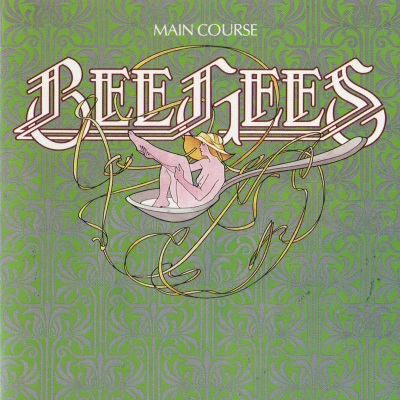
Main Course
1975年发行的《Main Course》这张专辑中的单曲Nights on Broadway更在1997年轰动各大舞池。如今专辑在全球累计销售量突破1亿张大关的比吉斯,不仅是唯一在60~90年代都能夺得排行榜冠军的歌手,更是历史上最成功的三重唱。 by Bruce Eder It may sound silly to call the 12th album by a group with an eight-year string of gold records behind them a "breakthrough," but that's what Main Course was. The group's first disco album -- and, for many white listeners, the first disco album they ever purchased -- Main Course marked a huge change in the Bee Gees' sound. The group's earlier LPs, steeped in a dense romantic balladry, were beautifully crafted but too serious for any but hardcore fans. Main Course had a few ballads, such as "Songbird" and "Country Lanes," but the writing was simpler, and the rest of it was made up of catchy dance tunes (heavily influenced by the Philadelphia-based soul music of the period), in which the beat and the texture of the voices and instruments took precedence over the words. The combination proved irresistible, and Main Course -- driven by the singles "Jive Talkin'," "Nights on Broadway," and "Fanny (Be Tender With My Love)" -- attracted millions of new listeners. It also repelled fans of the group's earlier style, which was a bit ironic. The disco numbers on Main Course displayed the same care and craftsmanship that had characterized, say, "First of May" or "Odessa." Barry Gibb's falsetto voice, introduced on this album, was startling at first, and became an object of ridicule in later years, but the slow break on "Nights on Broadway" and songs like "Fanny (Be Tender With My Love)" and "Baby As You Turn Away" were as exquisitely sung as "Lonely Days" or "How Can You Mend a Broken Heart," and they had the same sense of romantic drama, leavened by a layer of sheer fun; one had less of a sense that the singer was dealing with the love of a lifetime, so much as a conquest for the evening, which was in keeping with the sexual mores of the mid-'70s. And the spirit of fun was no accident -- producer Arif Mardin, seeking to rescue the group's stagnating career, had gotten the Bee Gees to turn their talents in a musical direction that they'd always loved but never embraced. Barry, Robin, and Maurice Gibb had been fascinated by R&B and soul for years ("To Love Somebody" had been written for Otis Redding to sing), but, as white Britons -- fearing they'd seem ridiculous -- they had never adapted those sounds themselves. Not only didn't they seem ridiculous, but they took to it as easily as they'd absorbed the Beatles' harmony-based rock sounds in the late '60s. It was a liberating experience for the entire group -- Blue Weaver, newly added to the lineup with an array of electronic keyboards and ideas that ended up shaping lots of the songs here; Alan Kendall, playing in a funky guitar style; and drummer Dennis Byron, playing more complicated patterns than he'd been asked to in years, were also delighted with the new direction, and they constituted the instrumental core of the band for the next six years. Years later, Main Course holds up as well as anything the group ever did, and with killer album cuts like "Wind of Change" (featuring a superb Joe Farrell tenor sax solo) and "Edge of the Universe" all over it, demands as much attention as any hits compilation by the group.

